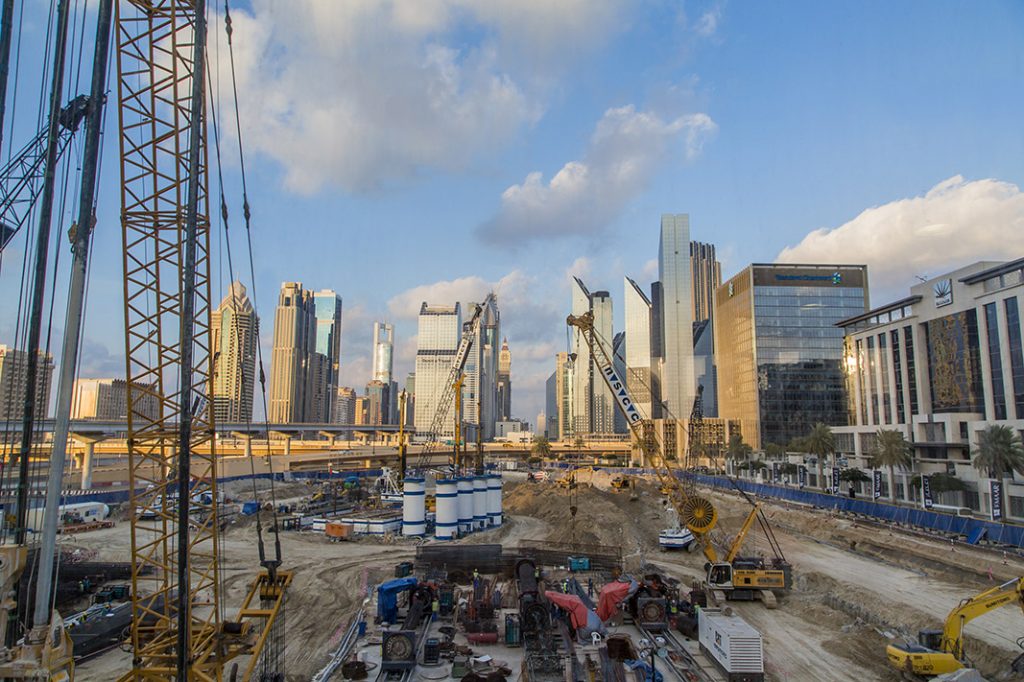Multi-billion dollar construction projects lead to multi-billion dollar FM contracts. But how should the facilities management sector evolve?
As the region shifts from an outdated approach of constructing and maintaining buildings to a more technologically advanced formula, the facilities management (FM) sector seems to be benefiting the most. The usually forgotten and undermined sector is now increasingly and rightly recognised as a key player in the overall lifecycle of a built asset.
Earlier this year, FM trends were highlighted in the ninth annual FM Expo organised by dmg events at the Dubai World Trade Centre. The event’s senior project manager Jaafar Shubber, observed that customer demand FM contracts which enhance services and result in improved cost efficiencies.
“Competitiveness in the sector and demand for technological advancement in FM services has definitely increased,” admits Guiseppe M.Matassi, Chief Financial Officer of ETA.
He says that there is plenty of opportunity to develop in this region. However, it gets tricky to find the balance and provide services that bring in technology without increasing the price.
“Technological advancement, either way, is undoubtedly a good thing. Not only does it increase the profitability for the developer but also helps the client have better information through technological improvements.”
With increasing demands for FM services, Jay Neel, senior manager of real estate at Noor Bank says that developers expect FM teams to be magicians. “That should not be the case.”
He says that service providers ought to be an extension of the client. “Be an association rather than a service provider. It is important to consider working together in a team in order to maintain the assets well.”
In order to work well in a team, it is important to consider factors such as the relationship between the developer and FM team. Eng. Yaser Abdulla Al Nuaimi, FM manager of Abu Dhabi Food Control Authority (ADFCA), observes that a successful team is one that has support, which takes time. This according to him could only be demonstrated through long-term relationships between the client and service provider, making long-term contracts are a lot better for team building.
Growth of FM
CEO of Imdaad Jamal Lootah observes that one of the key reasons regional and international FM companies are picking up momentum drastically is because of the opportunities created by the current boom in the GCC construction sector.
According to Dubai Statistics Centre, in the first half of last year the construction sector contributed 7.89% to UAE’s GDP, while Dubai Chamber of Commerce and Industry predicts that the sector will make an 11% contribution to the GDP over the next six years. This of course will have a tremendous impact on UAE’s FM sector which is already said to be worth AED20m this year.
Lootah says: “The current boom in the GCC’s construction sector has created lucrative opportunities for the regional and international FM companies. The UAE market is driven towards integrated FM solutions where companies offer informative, transparent and ultra-modern services to its clients.”
The FM industry has been forecasted to grow at AED20bn per annum by 2016. This prediction stems from an AED155bn turnover in the construction industry this year, with increases in the construction of hospitality and aviation facilities in Dubai. The robust growth in development and building infrastructure for airports, roadways, parking, ports and railways have resulted in optimum demand for FM services.
“The developing construction sector in the UAE is proactively bringing together several reputed companies raising awareness about their successful sustainable business practices. Cleaning services providers, in particular, play an important role in promoting sustainable and environmental responsibility in society,” commented Jayaraman Nair, chairman of VIS.
The Middle East Facilities Management Association (MEFAM) says that 70% of the 50 to 60 FM companies in the UAE run the business without outsourcing. According to Omega Real Estate, the UAE FM industry is valued at $1.5bn with 60% of operations managed in-house or by small, inexperienced contractors.Hafeez Abdullah, chairperson of The H Holding Enterprise says that the FM industry began to pick momentum a decade ago, but only recently has the trend accelerated.
He explains: “Under the present Real Estate Regulatory Agency (RERA), firms are asked to pick five areas, or codes, which best describe their business operations. This initiative by RERA has helped those choosing the FM code to demonstrate that they engage in powerful FM activities.”
Abdullah’s company launched an FM division after being encouraged by the UAE government’s formal training courses for companies adopting the FM code. The courses were introduced by the government as an act to standardise the sector.
Youssef Jammal, CEO of The H Holding Enterprise says: “This would bring better outcomes for the sector and will raise the standards of services provided. It will also boost competition and give further momentum to the industry.”
“FM is subject to continuous innovation and development, and is under pressure to reduce costs and add value to the core business of the client. We have studied this very carefully and are ready to handle several projects at once backed with great resources,” says Jammal.

